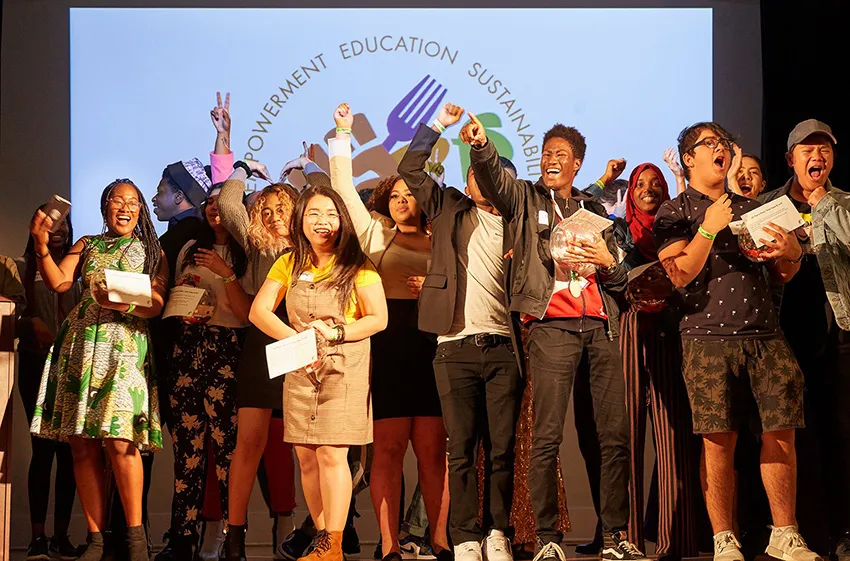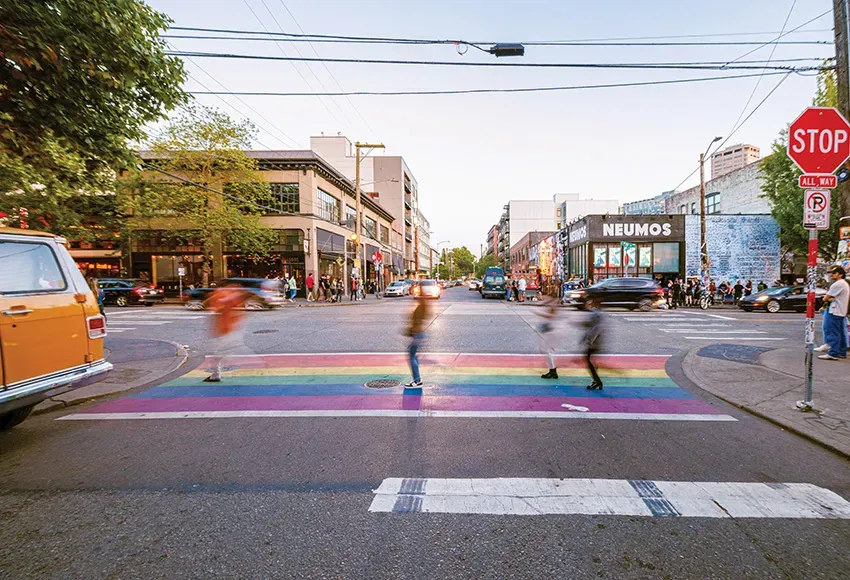Two philanthropic foundations have partnered to create a two-year pilot program that will provide $1.6 million in unrestricted funding to organizations that serve Queer youth in Washington. The Paul G. Allen Family Foundation, which invests in Pacific Northwest communities and focuses on underserved populations and youth, is providing the funds. Pride Foundation's role is implementing the project.
The two groups connected as early as 2020, when the Pride Foundation created a "Crisis Community Care Fund" for LGBTQ+ organizations. At the time, the Paul G. Allen Family Foundation had made a grant to Pride Foundation to support the emergency efforts.
"The partnership was developed over time as we continued to have greater alignment around shared priorities," said Katie Carter, CEO of Pride Foundation.
Though Pride Foundation also serves Alaska, Idaho, Montana, and Oregon, the pilot project is starting in Washington. The staff member at Pride Foundation working on the project did a landscape scan of groups in the state, and tried to find organizations outside of Seattle to provide rural support.
Thirteen subgrantees have received funds, and Carter says that Pride Foundation will put out an open call later this year or early next year for groups that might have been missed.
The staff member leading the project at Pride Foundation, who has 15 years of experience, will be conducting paid interviews with Queer youth to understand what kind of support they need.
"We're really using this as an exploration to understand how we can better support these organizations," Carter said.
There is currently no commitment on paper for similar projects in the future, but the language "pilot program" implies there may be more to come.

Stable funding
The grants are unrestricted general operating support, meaning the organizations that received the money are in control of it, and the funds don't come with any additional reporting requirements or prescribed projects from either foundation. This type of grant is somewhat abnormal in the philanthropic world, Carter said, and allows for the organizations to continue doing what they're doing, but with a more stable funding source.
"I can intimately understand the competing priorities for many smaller organizations having to decide between fundraising, writing grants, and then participating in other things," Carter said. "We're hoping this frees up space for what they're doing."
Cilia Jurdy, development and operations director at FEEST, one of the organizations receiving a grant, said that grants that aren't unrestricted can take up capacity on the nonprofit recipient's end due to arduous reporting requirements and receipt tracking. The unrestricted grants provide some flexibility, so the group can also change where the money is going, if need be.
"Direct programming is sexy, right? Saying, 'Oh, the money is going directly to our young people through youth stipends,' people love that," Jurdy said. "In the nonprofit world, we're seeing movement toward unrestricted general operating [funds], but that has been [after] many years of nonprofit folks really pushing for that."
Bridging a gap
LGBTQ+ issues are generally underfunded. Funders for LGBTQ Issues, an organization that works to increase philanthropic resources available to Queer communities, found that in 2021, only 28 cents for every $100 of philanthropic support by US foundations specifically supported LGBTQ communities and issues.
Carter said that Pride Foundation is small but mighty, and knows that other partners will be necessary to provide support. Using its expertise and connections in the community, the foundation works with larger organizations a to bridge that gap.
"Our hope is that ... the visibility associated with this partnership will elevate the opportunity to resource Queer, Trans groups and organizations in a more meaningful way by philanthropy," Carter said.
Jurdy has had a positive experience with Pride Foundation, saying it's been wonderful to to see trust-based and community-centric philanthropy.
"They are really open to conversations. Specifically for this grant, they were really low barrier. The questions they asked were thoughtful. They provided a lot of opportunities for us to reach out with whatever support we needed."
As for Pride Foundation, it's waiting for feedback from the community before deciding on next steps.
"The future is iterative. The future will be based on what we hear from groups and organizations," Carter said.


